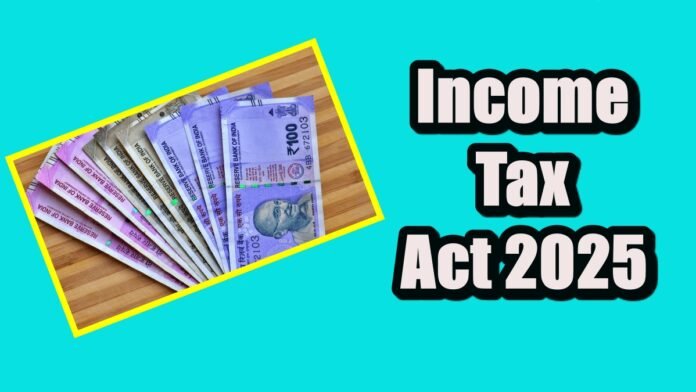
Key Points:
- New Income Tax Act 2025 approved by President Droupadi Murmu; notified on August 21.
- Act will replace existing IT law from April 1, 2026 without changing tax rates.
- Word count reduced by 50%: from 5 lakh to 2.5 lakh words for taxpayer convenience.
- Four key reforms: Simplified tax terminology, inclusion of crypto assets, Taxpayer Charter, and consolidated salary deductions.
- Drafting involved 150 officers, 60,000+ hours, and suggestions from Australia and Britain.
New Delhi: The Income Tax Act 2025, a landmark legislation introduced by Union Finance Minister Nirmala Sitharaman, has officially become law after receiving the President’s assent on August 21, 2025. The Act has now been notified by the Central Government and will come into effect from April 1, 2026, replacing the decades-old Income Tax Act of 1961.
According to official sources, the primary goal of this overhaul is simplification and modernization of India’s complex tax laws, ensuring greater transparency while retaining current tax rates.
A Simplified, Future-Ready Income Tax Law
Finance Minister Sitharaman first introduced the Income Tax Bill, 2025, in the Lok Sabha on February 13, 2025. The most notable structural change is the reduction in the law’s word count by 50% from nearly 5 lakh words to 2.5 lakh words, making it far more accessible for individual taxpayers and businesses alike.
The number of pages has been reduced from 823 to 622, while sections have increased significantly from 298 to 536 for better classification. Importantly, the chapters remain 23, while schedules rise slightly from 14 to 16.
4 Major Reforms in the New Income Tax Act
1. New Terminology: “Tax Year” Instead of “Assessment Year”
To simplify understanding, the Act replaces the widely misunderstood term “Assessment Year” with ‘Tax Year’, aligning with global best practices.
2. Crypto Assets Brought Under Tax Net
In a major step, cryptocurrencies and virtual digital assets are now classified under undisclosed income along with cash, bullion, and jewellery. This move makes digital transactions more accountable and curbs illicit use of crypto.
3. Introduction of a Taxpayers’ Charter
The Act incorporates a Taxpayers’ Charter, defining rights and responsibilities for taxpayers as well as for tax officials, ensuring greater transparency and trust in the tax system.
4. Consolidated Salary & Deduction Rules
Common salary-related deductions like standard deduction, gratuity, and leave encashment have been grouped in one section. This removes complicated overlaps from the older law, giving salaried taxpayers a simpler reference.
Global Expertise and Nationwide Consultation
The drafting of the new Act spanned over 60,000 man-hours and involved more than 150 senior Income Tax officers. The government received and reviewed 20,976 online suggestions from tax experts, businesses, and citizens before finalizing the draft.
Importantly, India also drew from international best practices. Consultations and comparative studies were carried out with Australia and the United Kingdom, both of which have modernized their tax codes in recent years. Past reform documents from 2009 and 2019 were also studied extensively before final drafting.
Impact on Taxpayers: What to Expect from April 2026
- No change in tax rates ensures taxpayers will not face an immediate financial burden.
- Tax filing and compliance to become easier due to simpler language and consolidation of provisions.
- Better legal clarity for cryptocurrency investors as digital assets formally enter the tax framework.
- Enhanced trust between taxpayers and the IT department through the new Charter.
Looking Ahead
The Income Tax Act 2025 is being hailed as India’s most ambitious tax reform in six decades. Experts believe that once implemented from FY 2026-27, it will not only simplify compliance for millions of taxpayers but also strengthen revenue collection through a more transparent, predictable, and modern tax code.





















































